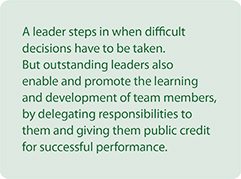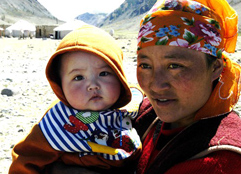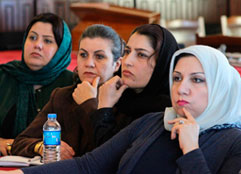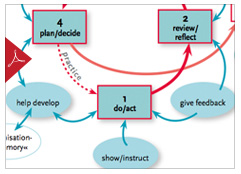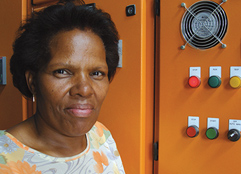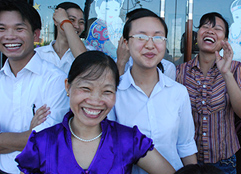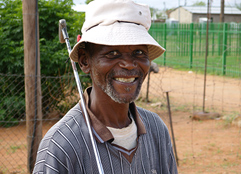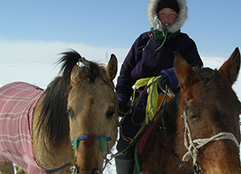ORDBILDARNA guiding principlesWe believe that increased well-being in a society depends on the development of individuals and organisations, and that most people want to learn and develop, work together and contribute to a better life for all. We practise an integrated approach to capacity development which involves action learning based training, developing resource materials and development facilitation. We also help teams and organisations to document and share their experiences and learning. Our work is guided by the following principles.
Start where people areDevelopment interventions must meet the needs and context of client organisations. Capacity development must start at the level of participants, and training materials and manuals should be user-friendly and relevant.
PartnershipsWe accompany client-partner organisations and their leaders through change processes, and respect and respond to their questions, concerns and changing needs, to help them meet their development challenges.
Learning for continuous improvementWe believe in the potential of people to take responsibility and participate in development, and we help them to build learning organisations in which everyone learns and contributes to improved results. This builds awareness, confidence, skills and organisational capacity based on improved communication, teamwork, decision making and problem solving.
Openness and creativityWe value a diversity of people, views, ideas, abilities and creative contributions. We encourage and trust people to investigate real causes, question ways of doing things and become creative in developing solutions to improve services.
Bridging the knowing-doing gapTraining and capacity development are only effective when they improve individual and organisational performance. We therefore build practical application and projects into all training and learning processes. We train our partners to practice action learning, which involves evaluating what they do in order to do better.
Leading by exampleWe understand that we play a leadership role in the programmes that we facilitate and we strive to set a good example by acting responsibly and with integrity. We work transparently in partnership with clients and respect differing views, while diversity, gender equality and environmental sustainability are cross-cutting themes. We believe in what we do, and encourage and inspire learning that empowers partners towards self-reliance in sustaining their own development.
Our approach to capacity developmentCapacity cannot be built ‘from the outside’ – people must participate in developing their own capacity. Learning and development are central to our work. Active reflection together with colleagues and partners enhances our understanding and practice, which improves the quality of results for our clients. Our development interventions balance structured, technical elements and flexible, developmental approaches and facilitation. We start by diagnosing the situation and needs with partners, and planning solutions with them.
ParticipationWe always use participatory methods in facilitating development processes and training interventions. We work in partnership with clients, as development depends on good communication and relationships. By asking questions rather than giving answers, we foster evaluative thinking and awareness, and encourage our partners to use action learning as a method to sustain ongoing improvement.
Action learningAction learning is the key to sustained learning and development, for individuals, teams and organisations. We facilitate action learning processes in which partners and participants review and evaluate their work and experience, and plan and implement improvements. Action learning steps are – Act, Review, Evaluate and Learn, Plan, Improve Action. Repeating the cycle creates an upward spiral of continuous improvement. It enables people to identify and solve problems, initiate positive changes and continuously improve their performance and services.
Fieldwork assignments integrate learning and developmentThe most effective training and learning processes have a number of modules, interspersed with implementation of learning in the organisation. Participants undertake individual and team fieldwork assignments to implement learning and make real improvements in the workplace. Assignments are planned at the end of modules, and the results and learning are shared and discussed at the next. Types of fieldwork assignment include
Developing learning materialsWe develop user-friendly learning materials, together with partners and participants. We develop materials with target group representatives, and adapt and improve them during programmes, to ensure that they are relevant, user-friendly and co-owned. Materials include examples from fieldwork assignments.
Learning from othersOur programmes often include site visits, learning journeys and study tours to learn from the good practices of others, which we also incorporate as examples in handbooks and resource materials. |
|
